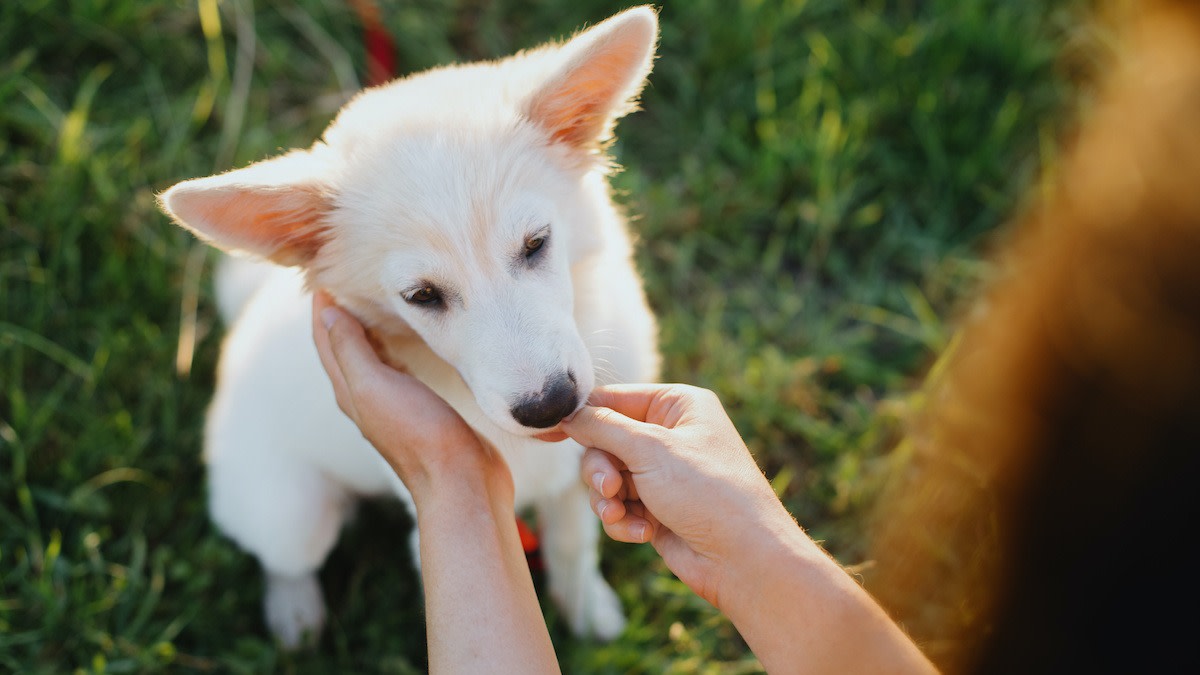Can Dogs Eat Brussels Sprouts? 3 Benefits of Brussels Sprouts
Written by MasterClass
Last updated: May 5, 2022 • 3 min read
While dogs can eat brussels sprouts, there are some factors dog owners should consider. Discover the health benefits of the vegetable, including how it can help boost your pet’s immune system and add fiber to their diet.
Learn From the Best
Can Dogs Eat Brussels Sprouts?
Yes, brussels sprouts are safe for dogs in moderation. While pet food should comprise most of your dog’s diet, brussels sprouts are a healthy supplement or snack since they’re high in dietary fiber, rich in vitamins, and low in fat and calories. Brussels sprouts are part of the cruciferous vegetable family along with kale and cabbage. These vegetables contain the compound isothiocyanate, which can cause the unwanted side effect of increased flatulence in dogs when eaten in excess.
You can feed your dog small quantities of cooked, unseasoned brussels sprouts. Avoid adding oil, salt, spices, or other ingredients like garlic or onions. Cut up the individual sprouts and do not offer your dog the brussel sprout stalk since the fibrous, thick stalk can pose a choking hazard or impaction risk in your dog’s body and gastrointestinal tract.
Are Brussels Sprouts Good for Dogs? 3 Benefits of Feeding Your Dog Brussels Sprouts
The nutritional benefits of brussels sprouts help support your dog’s health. Brussels sprouts are:
- 1. Full of vitamins: Brussels sprouts contain essential vitamins, antioxidants, and minerals, including vitamin A, vitamin B1, vitamin B6, vitamin C, vitamin K, calcium, folate, potassium, kaempferol, and manganese. These nutrients aid healthy blood circulation by preventing blood clotting and support your dog’s immune system and bone health.
- 2. Low in fat, carbohydrates, and calories: These cruciferous vegetables are low-fat, low-carb, and low-calorie dog treats safe for large and small dogs or pets with diabetes.
- 3. Rich in dietary fiber: Brussels sprouts are a rich source of dietary fiber, which aids in digestion and helps break down food in the digestive tract. Small amounts can help support healthy bowel movements but avoid feeding your dog large amounts of brussels sprouts. Too much fiber can upset your dog’s digestive system and lead to diarrhea.
How to Safely Prepare Brussels Sprouts for Dogs
Whenever you add a new food to your pet’s diet, start with small quantities and monitor your furry friend for symptoms of an upset stomach. If your dog loves the taste of brussels sprouts, follow these tips to prepare the treat for your pet:
- 1. Choose plain brussels sprouts. When buying brussels sprouts, opt for fresh or frozen sprouts free of added seasonings or preservatives.
- 2. Cook until soft. Raw brussels sprouts can be a choking hazard for your dog and are difficult to digest, resulting in a lot of gas. Cook the brussels sprouts to make them safer and healthier for your dog. Boiling or steaming are good options; your dog’s stomach cannot process large amounts of fats so avoid roasting. You can microwave the brussels sprouts in a bowl of water for six to eight minutes or boil them for fifteen to twenty minutes.
- 3. Avoid adding seasonings. Do not season brussels sprouts intended for your pet. Seasonings like salt dehydrate or poison your dog; onions and garlic are toxic to canines.
- 4. Allow them to cool. Let your cooked brussels sprouts cool completely before offering the treat to avoid burning your dog’s mouth.
- 5. Cut them into smaller pieces. Brussels sprouts can be large and difficult to chew or swallow, especially for smaller dog breeds. Cut them into bite-sized pieces to prevent a choking hazard.
- 6. Portion based on the size of your dog. Treats should make up a maximum of ten percent of an adult dog’s daily caloric intake. Serve your dog a moderate amount of brussels sprouts. Too many brussels sprouts can cause bloating and an upset stomach.
- 7. Experiment with how to serve brussels sprouts. You can offer your dog brussels sprouts as a treat or mix the vegetable into homemade dog food.
Before Sharing With Your Pooch
Certain human foods can cause adverse reactions in canines, so always consult your veterinarian to determine whether it is safe to add these foods to your pet’s diet. This article is for educational and informational purposes and is not a substitute for medical or dietary advice.
Want to Learn More About Training the Goodest Boy or Girl?
Your dream of having a dog who understands words like “sit,” “stay,” “down,” and—crucially— “no” is just a MasterClass Annual Membership away. The only things you’ll need to train up a well-behaved pup are your laptop, a big bag of treats, and our exclusive instructional videos from superstar animal trainer Brandon McMillan.
